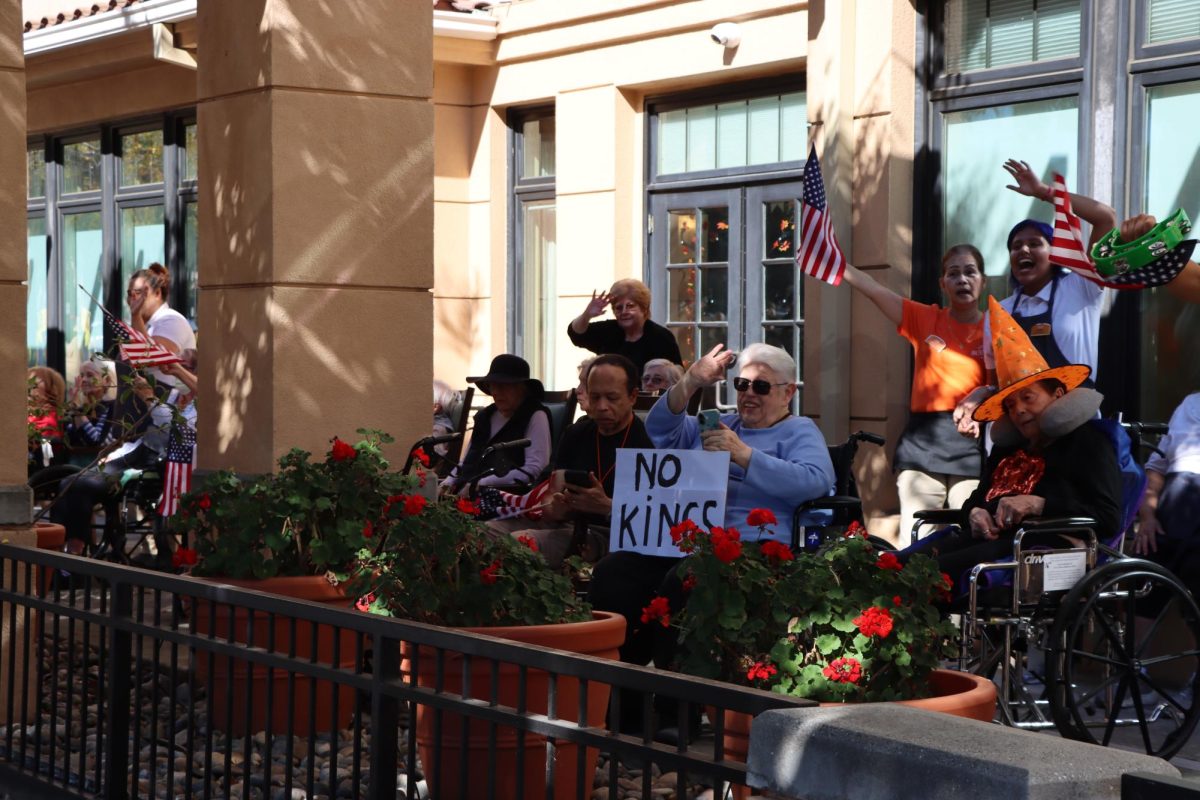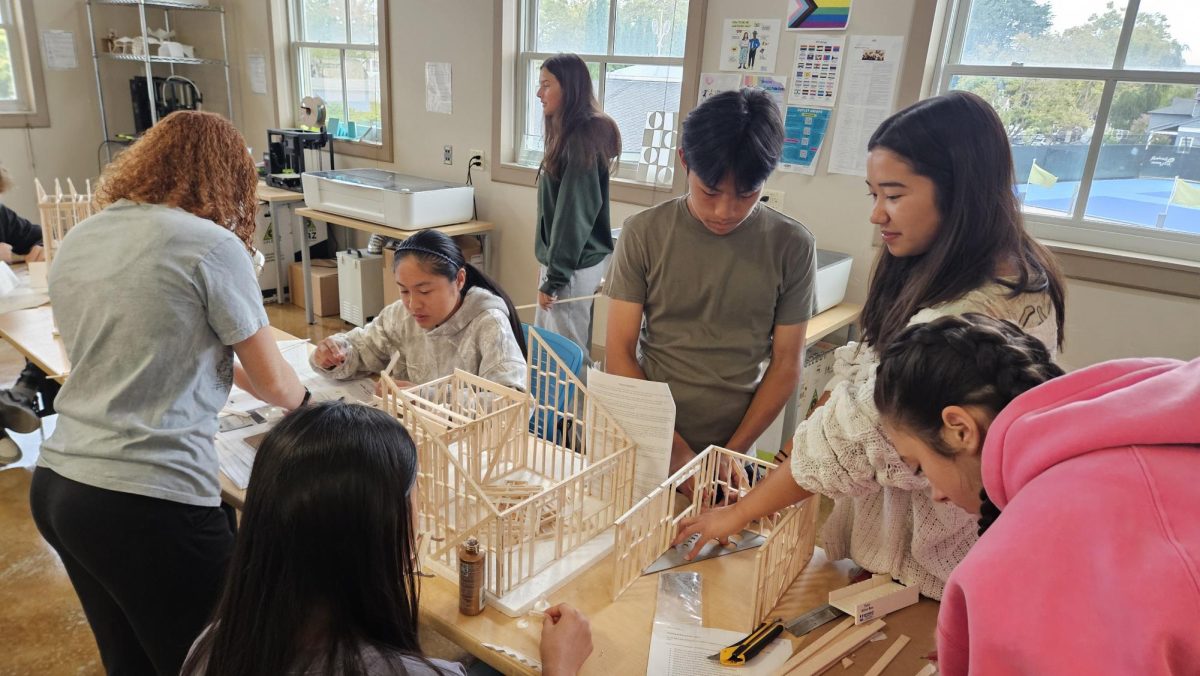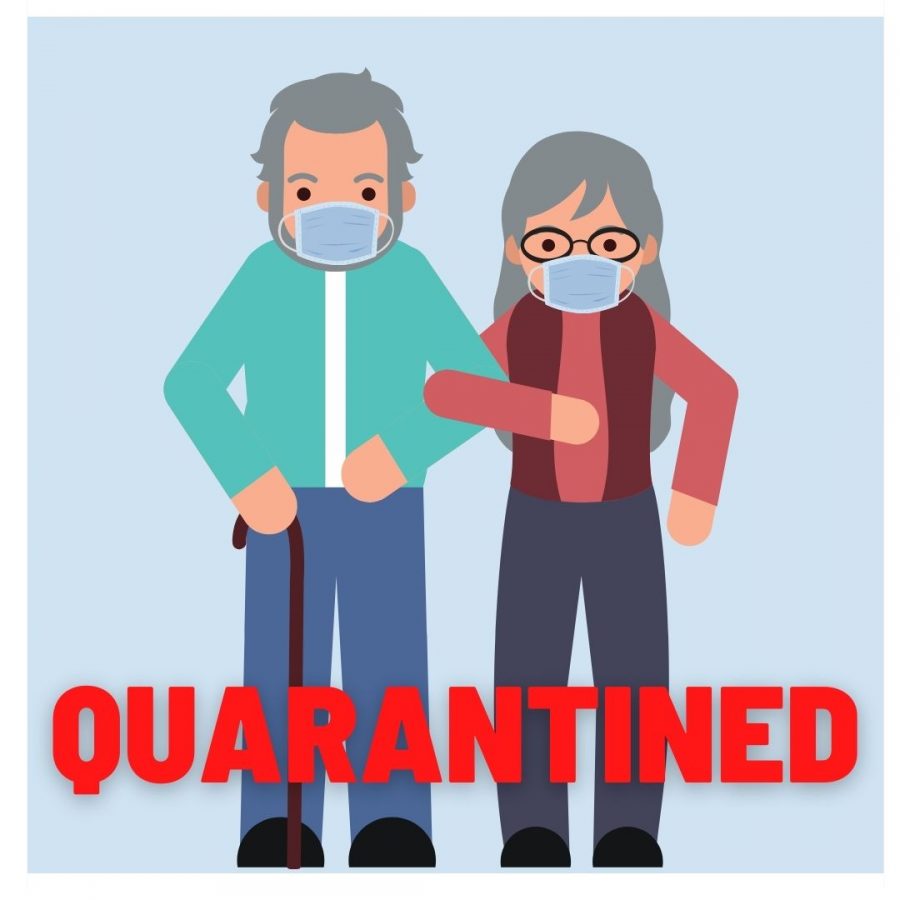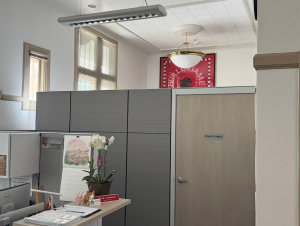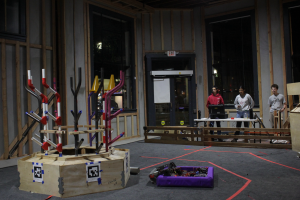Elderly battle isolation in quarantine
The elderly have been restricted from seeing friends and family, forcing them to feel isolated throughout the COVID-19 pandemic.
January 28, 2021
The elderly have been heavily impacted by the pandemic with the new need to socially distance and a dependence on virtual conversations. The current restrictions have created repetitive days and limited social interactions that led to more mental instability. The new risks force them to be extra careful, however it also initiates a fear within them. Clinical psychologist Dr. Ted Gradman works with the elderly in San Mateo as a private practice and explained that older people, knowing the large risk of contracting COVID-19, can develop panic disorders from the intense fear.
“If somebody, you know, has a sense that they’re coughing, for example, … they might think, ‘Oh my God, this means that I now have Covid,’ and the alarm system in their body goes off and increases the intensity of the cough,” Dr. Gradman said.
Along with this type of anxiety, finding motivation and purpose is vital for seniors. As individuals get older and retire, the world they used to live in dissolves and they attempt to find ways to fill their time and activities that give them a purpose.
“It’s really important for your sense of well-being to have a sense that, you know, your life has purpose,“ Dr. Gradman said.
The elderly in quarantine have now become substantially bored, and therefore have a harder time acquiring a purpose. Burlingame sophomore Morgan Patch has always been very close with her grandparents. In quarantine she has developed much more empathy from their lack of social interaction.
“It’s been really hard on them just because my grandpa retired right before Covid and he’s a very active guy so for him not having the opportunities to go hang out with friends or go to lunch with friends has been harder,” Patch said.
Patch says that at one point her grandparents had to be extra careful because her aunt got COVID-19 and risked infecting Patch’s grandparents.
“I think that was really hard because they didn’t even have the option to leave the house with a mask on, they had to stay inside, so I think, ever since that they’ve definitely come more to terms with it but I think at the beginning it was definitely part of their mental health,” Patch said.
For senior citizens that live on their own, their experience is similar to a residence home nowadays. Most seniors can only rely on virtual activities and limited interactions. At Atria Senior Living, the residents haven’t had visitors or entertainment other than television and they have been quarantined to their rooms. Atria has implemented a pen pal program with Washington Elementary School and has attempted virtual concerts as well as offering FaceTime calls with family and friends to keep the residents socially active. Pre-pandemic, the residents’ daily lives involved communal dining, games and movie nights with the whole Atria community, however now, the restrictions cause intense isolation from the other residents.
“They do understand that it’s for their safety… they’ve been troopers through this but of course it does take a mental health toll,” Alicia Rupan, the activities director for Atria said. “We tried to do the virtual music experience with them … We only had two residents that actually enjoyed it, and then the others that didn’t really.”
Quarantine has been a tough moment in everyone’s lives, but especially for the elderly. Their boredom outside of quarantine was already substantial, however with the pandemic it is magnified.
“Elderly people are accustomed, more than younger people, generally to having a number of crises. So in some ways, people who are older, are better equipped to cope with social isolation. On the other hand, older people tend to have much less skill in using, you know, computerized devices so that makes their ability to steer in the quarantine… more challenged,“ Dr. Gradman said.


